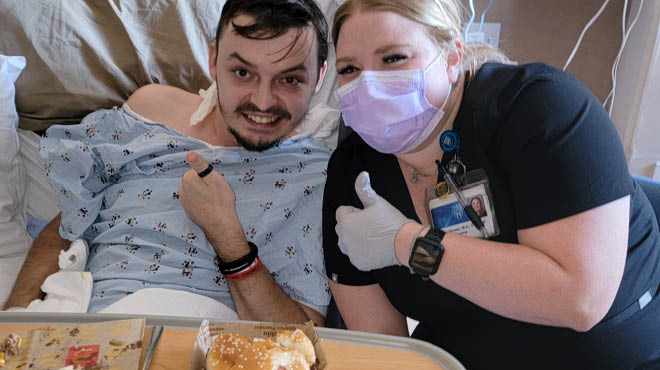How to improve communication with a loved one who has aphasia

Imagine being dropped off in a country where you aren't fluent in the local language Even when the native speakers speak slowly, you may understand only portions of what's being said. This is similar to how someone with aphasia may feel every day.
Aphasia is an impairment of language that may affect ability a person's ability to speak, understand spoken language, read, write, use numbers, perform calculations or use nonverbal gestures. It happens after an injury to the brain, most commonly a stroke. However, it also can be caused by a traumatic brain injury, brain tumor or other incident affecting the brain.
What are the symptoms of aphasia?
Aphasia symptoms can range from mild to severe, with each person experiencing their own set of communication weaknesses. Mild forms of aphasia may include only occasional difficulties finding words. But those with severe aphasia can suffer a complete loss of ability to speak or understand spoken and written words.
One of the most common questions about aphasia is, "When will this be better?" Research suggests that most recovery happens during the first four to six months following the injury. However, improvements in communication can continue for years.
How can you treat aphasia?
A speech-language pathologist, or SLP, trained in treating aphasia and related disorders can help with recovery. According to the American Speech-Language Hearing Association (ASHA), clinical evidence declaring shows that people who receive services from qualified SLPs benefit in quality and quantity of their language recovery.
Therapy may focus on regaining abilities, strategies to compensate for communication loss or a combination of both. Either way, the main goal of treatment is to improve the quality and efficiency of communication.
10 tips for communication success
An aphasia diagnosis affects not only the person, but also their family and friends. When communicating with a loved one who has aphasia, setting them up for success is essential.
Here are 10 tips for improving communication with someone who has aphasia:
- Continue to treat the person with aphasia as a mature adult.
- Reduce background noises, such as the radio, TV and other conversations.
- Reduce visual distractions, including the TV and people moving around the area.
- Be sure you have the person's attention before speaking to them.
- Keep messages short and simple. Speak slowly but naturally. Speaking louder doesn't increase understanding.
- Use gestures, facial cues and voice intonation to help the person understand the message, even if they don't understand the words.
- Don't assume they understand what you're saying. Your loved one may respond with head nods and sounds of agreement but still not understand what's being said.
- Encourage communication and be patient.
- Give your loved one plenty of time to respond, and try not to answer for them.
- Include the person when they're present. Don't talk about them as if they aren't there. Just as you shouldn't assume comprehension, don't assume lack of comprehension.
Recovering speech and language after an aphasia diagnosis can take time and practice, so give your loved one support, and remain calm and focused on improving communication together.
Jody Englert is a speech-language therapist in Red Wing, Minnesota.



